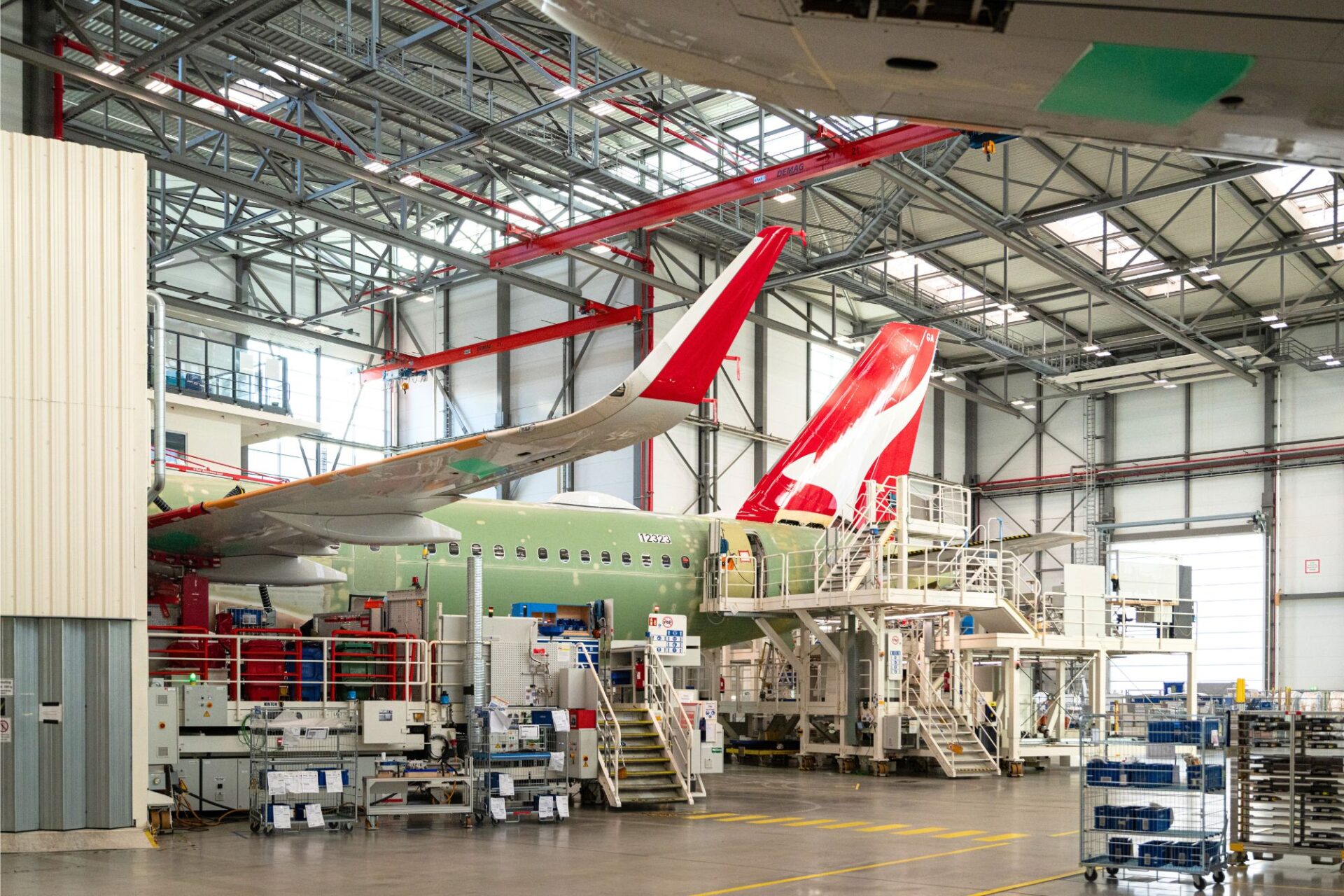Qantas provided a sneak peek of its first A321XLR, with the aircraft entering the final assembly line at Airbus’ Finkenwerder production facility in Hamburg, Germany.
The move marks another step forward for the Qantas Group’s fleet renewal program, and sees the aircraft’s major airframe components, including the forward and rear fuselage, wings and iconic Flying Kangaroo tail, coming together.
The aircraft, which is scheduled to be delivered in April 2025, will be the first of 28 A321XLR aircraft on firm order (with purchase right options for more) as part of the progressive replacement of the group’s fleet of Boeing 737s over the next decade.
When the A321XLR takes to Australian skies next year, Qantas customers will be the first in the Asia Pacific region to experience the Airbus A321XLR. The first aircraft to arrive, with registration VH-OGA, will be called Great Ocean Road.
Iberia was the first airline globally to operate a trans-atlantic commercial flight with the A321XLR on November 14, 2024.
Say hello to our first @Airbus A321XLR! 😍
The aircraft has now progressed to the final assembly line at Airbus’ Finkenwerder production facility in Hamburg, Germany ahead of its scheduled delivery in April 2025.
Our first A321XLR will sport the rego VH-OGA and will be named… pic.twitter.com/RV1tGntqvI
— Qantas (@Qantas) November 29, 2024
In readiness for the arrival of the first A321XLR, Qantas engineering has received almost 800 pieces of new tooling and pilot training is underway with pilots spending up to 60 hours in the new simulator before stepping into the flight deck.
Qantas Group CEO Vanessa Hudson said the first A321XLR rolling onto the final assembly line follows more than two years of hard work and planning by a number of teams across Qantas.
“These new aircraft are part of the biggest domestic fleet renewal program in Qantas’ history, which is bringing significant improvements for customers and career opportunities for our people,” Hudson said in a statement.
“The A321XLR is a fantastic aircraft, which provides a more comfortable flight for customers and the longer range will in time give us the opportunity to explore more non-stop routes and operate them more efficiently,” Hudson said, adding that Qantas will be training more than 240 pilots on the A321XLR over the next three years.
Powered by Pratt & Whitney Geared Turbo Fan engines (PW1100G-JM), Qantas’ A321XLR are five metres longer than the outgoing 737s and will seat 197 passengers (20 business seats and 177 economy seats) – an increase of 13% in total seat capacity with no reduction in space between seats and a 66% increase in premium seats.

